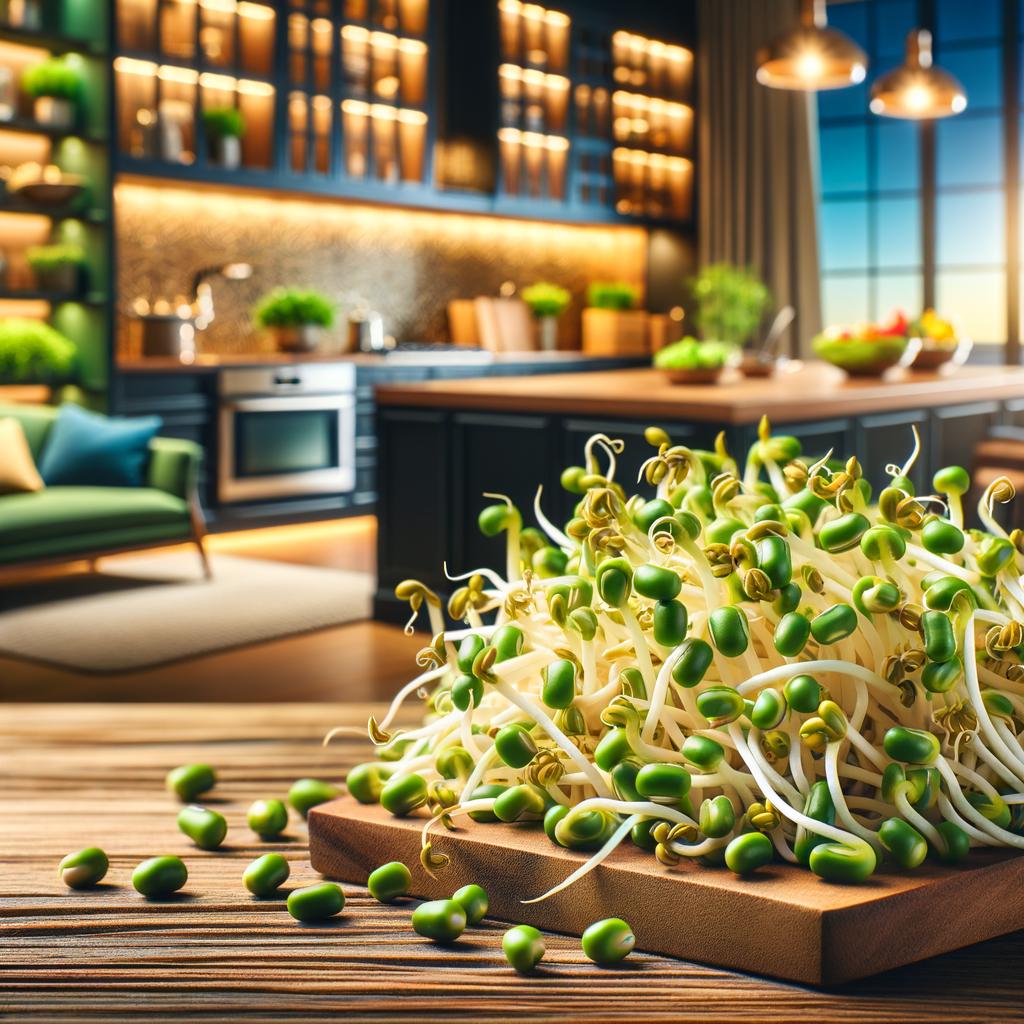Mung Bean Sprouts

Description
Meet the humble mung bean sprout, a staple in many Asian cuisines and an ingredient that's as versatile as it is nutritious. At first glance, mung bean sprouts might appear unassuming with their slender white stalks and tiny yellow-green heads, but don't let their simple appearance fool you. These sprouts have a satisfyingly crunchy texture and a subtly sweet, nutty flavor that can liven up any dish. What sets mung bean sprouts apart from other sprouts is their resilience. Unlike other delicate sprouts, they retain their crunch even after being cooked, making them a favorite ingredient in stir-fries and soups.
Primary Uses
Mung bean sprouts are a common ingredient in many Asian dishes, particularly in Chinese, Korean, and Vietnamese cuisines. They are often used in stir-fries, where they add a delightful crunch and absorb the flavors of the other ingredients. You'll also find them in soups, where they provide a contrasting texture to the broth. In salads, they add a refreshing crunch and a subtle sweetness. Beyond their culinary uses, mung bean sprouts have also been used in traditional Chinese medicine for their cooling properties and their ability to help detoxify the body.
History
The history of mung bean sprouts is as rich and varied as the dishes they grace. Mung beans themselves are believed to have originated in India over 4,000 years ago and were later introduced to China, where the practice of sprouting the beans began. The sprouts were valued for their nutritional properties and were used as a source of food during long sea voyages. Over time, their use spread throughout Asia, and they became a key component in many traditional dishes. There's an old Chinese saying that goes, "A handful of mung bean sprouts a day keeps the doctor away," highlighting their historical significance in promoting health and well-being.
Nutritional Information
Mung bean sprouts are a powerhouse of nutrition. They are low in calories but high in protein and fiber, making them an excellent choice for those looking to maintain a healthy weight. They are also rich in vitamins C and K, and a good source of folate and magnesium. Compared to other sprouts, mung bean sprouts have a higher protein content and are more calorically dense, making them a more filling option. Consuming mung bean sprouts can support digestive health, boost immunity, and contribute to bone health. However, as with any food, they should be consumed as part of a balanced diet.

